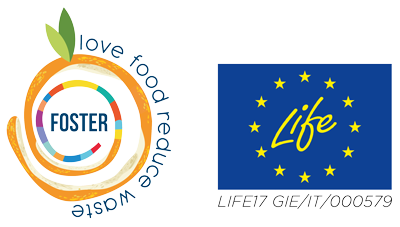In the time of our grandparents, the word “organic” didn’t even exist in the same context as food. There was no need for such a label because everything was natural and organic by itself. They didn’t even have to question if the food they eat is fresh since everything they had on their table came straight from the garden. So much has changed since then. The food we eat now is mainly chemically treated, imported and processed. The nutritional value is lost along the way, and the taste of the food is somewhat improved by adding more chemicals.
Consuming local and seasonal food is the counteract that can curb these unsustainable and environmentally harmful trends. Supporting local farms and eating seasonally can bring back our long-lost connection to natural cycles, organic farming and nutritionally rich food that taste like heaven. Moreover, if we buy the local fruits and veggies from nearby producers, we support the small economies that use biodynamic and natural farming beneficial for the environment.
Also, local farmers usually don’t strive to become part of the big supermarket chains. In that case, they would have to start using chemicals to produce the expected amount of food in a given timeframe – precisely what local farmers want to prevent. Chemical farming is the cause of soil infertility on farms around the world. The toxins put in the soil affect crops in the long run, making it very difficult to clear out the ground and return to organic farming.
If we eat food that is grown locally, it also means that it will taste better. Just imagine how long it takes for strawberries to arrive from Spain to Germany or anywhere in Europe for that matter. Until they come to our table, they lose the freshness. Even more so, since treated with chemicals, they don’t have such sweetness compared to the local strawberries picked the same day you eat them. All in all, the less our food traveled, the tastier it gets.
Further, if our food doesn’t travel long distances, the carbon impact is significantly reduced. This way, we spread environmentally friendly practices and help our planet heal from decades of pollution.
Eating seasonal food also means that the nutritional value of our food is at its peak. This is because we find the most vitamins and minerals in ripe fruits and veggies. So, if we follow the seasons and eat only what is currently harvested, we consume the best of what each season can give us. In contrast, the imported food has to be picked before it is ready so that it doesn’t get spoiled during the long journey. Therefore, it doesn’t have the nutritional value as the seasonal and locally grown produces.
Last but not least, seasonal food costs less. Because of the market laws of supply and demand, the price drops if there is high product availability. If, on the other hand, we buy the same fruit or veggie in the offseason, we will pay for this product much more since the cost of storing, transporting and producing is much higher.
So, with all these advantages of eating local and seasonal food, we hope you will consider supporting your nearby local farmers and start buying only what is in the season – your health, local farmers and our planet will be more than grateful.


